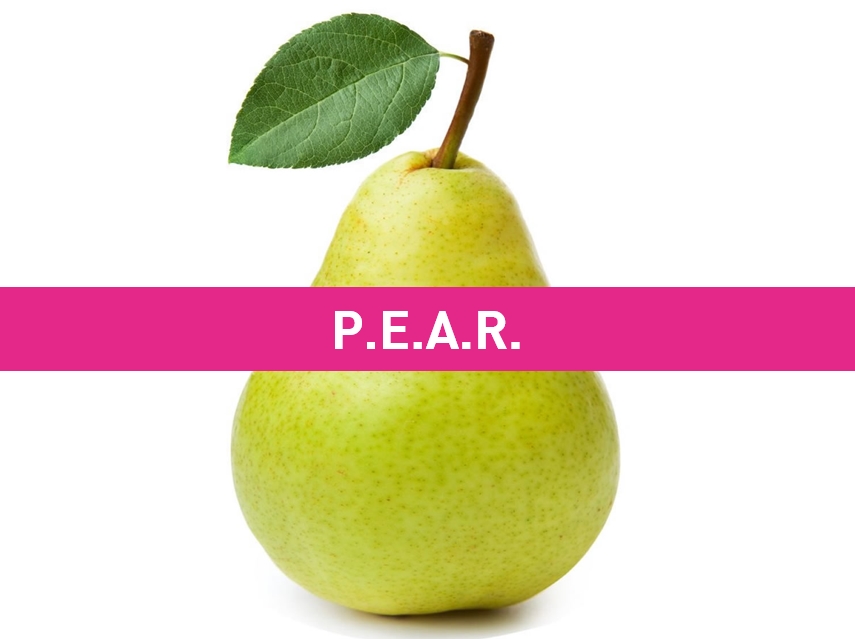Revision Tips

| Blank Revision Timetable | Useful Revision Links |
|
|
General Revision Strategies |

PEAR stands for:
- Planning
- Environment
- Active not passive
- Relaxation
By focusing on these four attributes, you can maximise the impact of revision at home.
Planning
As the saying goes, if you fail to prepare, you prepare to fail. Planning is critical if you are to make the most of your revision time.
Here are our top tips:
- Find out when your exams are and work backwards from there. You'll be issued with an exam timetable that tells you when each exam will be. You can use this to priortise your revision. The sooner an exam is, the bigger the priority it might be for you.
- Know what you're going to be tested on in each exam. Knowledge is power. The more you know about an exam paper, the more you can prepare yourself for it. How long is it? What questions will you be asked? What's the best way to approach each question? Your teachers will be fountains of knowledge here, and will be able to supply you with past papers, mark schemes and examiners' reports that will give you valuable advice. They'll show you exemplar answers from students who excelled in the exams. Learn from these.
- Prepare a revision timetable and stick to it. You can do this on paper or online - this site is particularly easy to use. There's no time like the present for this. The sooner you get revising, the more time you'll have to do it. We recommend aiming for 2 hours per day during term time, with more at the weekends and during breaks.
Environment
It's vital that you have a suitable environment in which to revise. It should be calm, clean and clear of distractions. That mobile phone can probably be switched off. The PS4 should be out of the way. If you're going to use a computer, try to avoid the distractions of Netflix and YouTube and social media. Unfocused revision is almost as bad as no revision at all.
Here are our tips for getting the environment right:
- You need to minimise distractions. In the online age, it can feel like we're tethered to our phones and computers. They constantly demand our attention. You need to overcome these distractions so that you can focus on your revision. That WhatsApp reply can wait - as can updating your Snapchat story. And save the next episode of your Brooklyn Ninety-Nine binge for when you need a break.
- Have music on if it helps you to concentrate. There's conflicting research about the impact music has on revision. Some studies suggest it helps; others show the opposite. Do what works for you. If having music on quietly in the background helps you to focus, then have it on. Otherwise: go for quiet.
- Keep the environment well-lit and with plenty of fresh air. Dim lighting and stagnant air can cause us to lose concentration.
- Make sure you're hydrated and not hungry. Hunger and thirst are the enemies of focus.
Active not Passive
Active revision is far more effective than passive revision. As you'd expect, it's also a bit harder! Research shows that passive revision strategies - like reading a revision guide or highlighting some old worksheets - don't tend to help things 'stick'.
Active strategies, on the other hand, get your brain working harder, and so are much more effective.
This video introduces some great active strategies:
If you're a fan of revision cards (also known as flashcards), you might find Quizlet useful. It's a site where you can make your own flashcards, which then sync up with a phone app that allows you to test yourself.
Relax
Making time to relax is just as important as the revision itself - but it's important to get the balance right. Ten minutes of revision followed by an hour of TV is probably not the right ratio!
As a general rule, you should aim to have a 15 minute break from revision for every hour that you do. You need to give your brain some 'recovery' time so that it's back to full capacity for your next session. Go for a walk. Listen to some music. Grab a drink or a snack.
Exams naturally generate a lot of stress - and the most successful students don't let this overwhelm them. The best way to keep on top of stress is to follow the tips we've given here. Plan your time carefully so that you feel on top of everything, make sure you have a comfortable environment in which to revise, and focus on active revision so that you make the most of the time you have.



